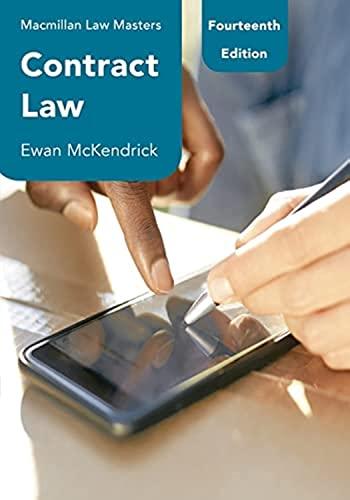Question
1. When police have violated the Fourth Amendment rights of an individual during the process of acquiring evidence, the exclusionary rule generally prohibits the introduction
1. When police have violated the Fourth Amendment rights of an individual during the process of acquiring evidence, the exclusionary rule generally prohibits the introduction of that illegally seized evidence against the defendant in both state and federal courts.
What is the basic rationale for excluding otherwise reliable evidence for consideration by a jury or by a judge?
2. The exclusionary rule has a variety of exceptions.
a. What is the good faith exception to the exclusionary rule?
b. According to the Supreme Court of the United States, what is the theoretical basis for allowing evidence to be admitted when police, in executing a warrant, made a mistake but did so in good faith?
3. Emergency situations when life or health may hang in the balance often permit officers to enter private premises without warrants.
Give an example where police officers may properly enter a private home without a warrant, thus allowing any evidence discovered to be free of exclusion by the exclusionary rule.
Step by Step Solution
There are 3 Steps involved in it
Step: 1

Get Instant Access to Expert-Tailored Solutions
See step-by-step solutions with expert insights and AI powered tools for academic success
Step: 2

Step: 3

Ace Your Homework with AI
Get the answers you need in no time with our AI-driven, step-by-step assistance
Get Started


